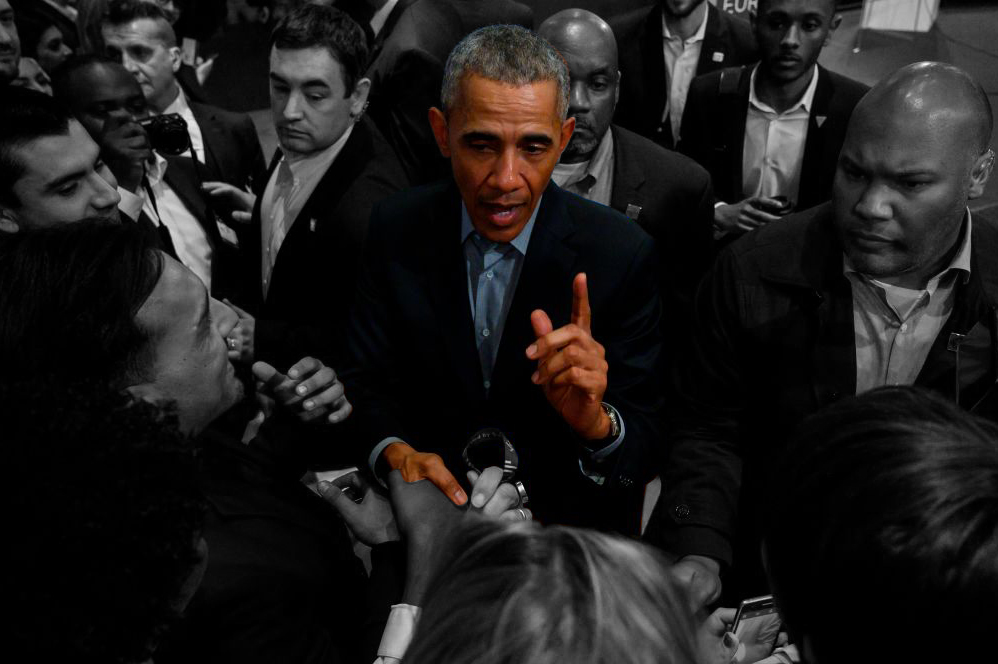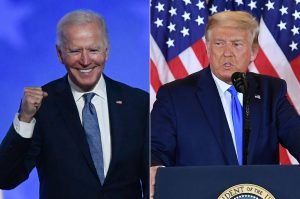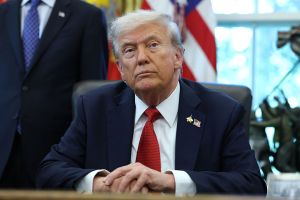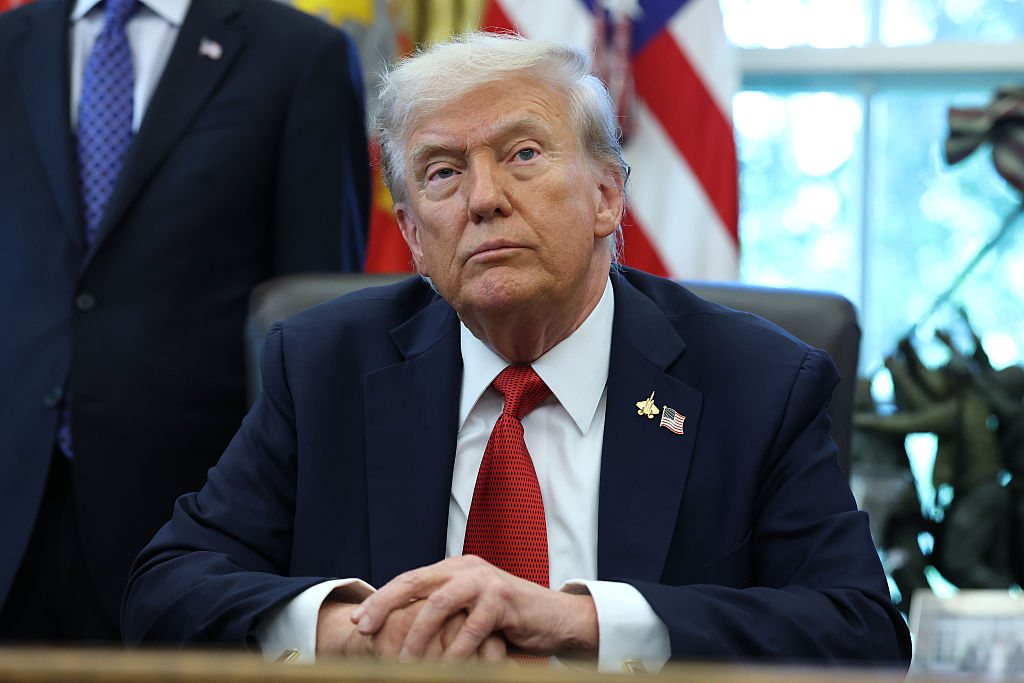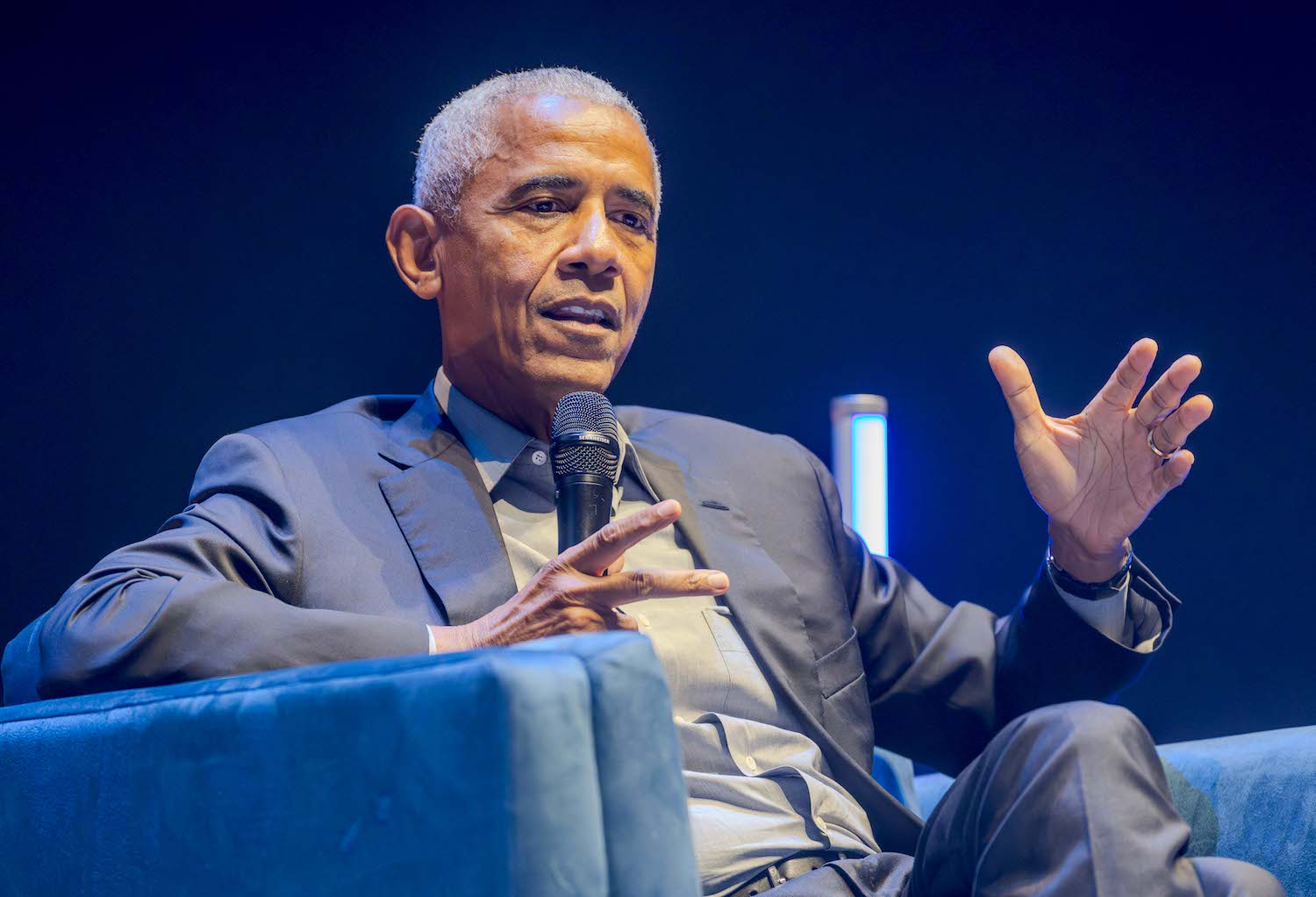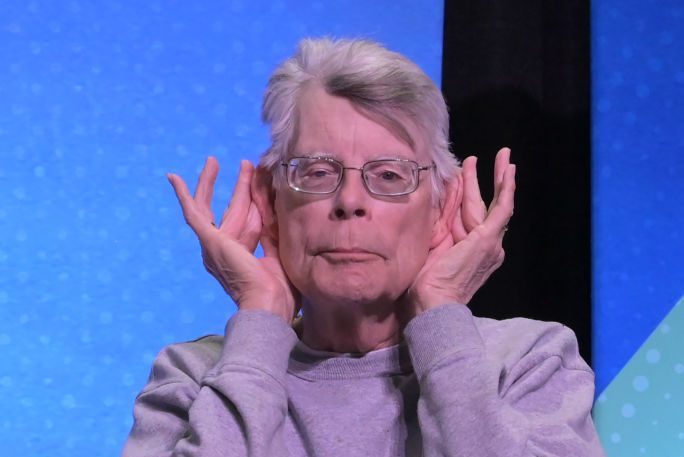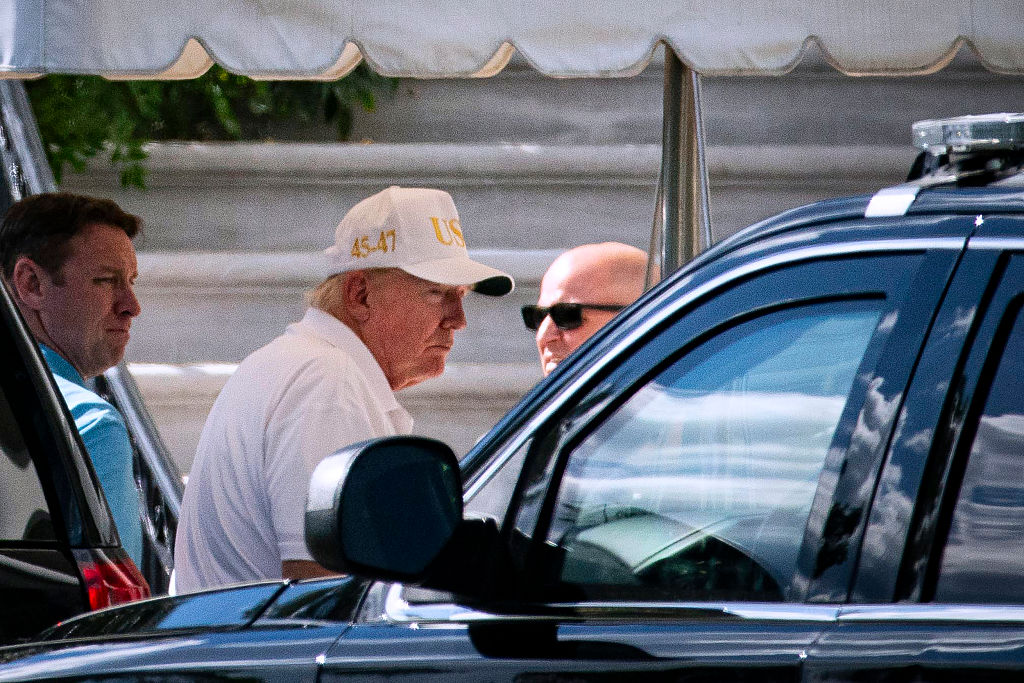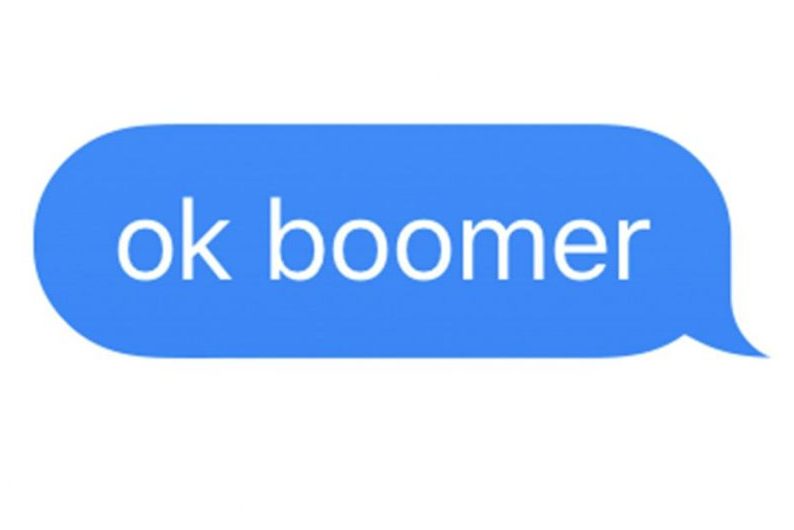Last week Barack Obama, grayer, wearier and older in every way, was in Berlin at one of his foundation’s conferences for ‘emerging leaders’ in Berlin. After wheeling out a few cringe-inducing platitudes like ‘I don’t have a regular meditation practice’ Obama did say something genuinely interesting about where the Democrats are heading going into 2020.
He warned that elements of the party were becoming a ‘circular firing squad’ who targeted those ‘straying from purity’ on a variety of issues. Always a big tent politician (‘There are no red states or blue states, just the United States’), Obama is clearly alarmed by the zealotry and peevishness that is becoming the hallmark of his party, especially online, especially on Twitter.
‘You have to recognize that the way we’ve structured democracy,’ Obama told the audience, ‘requires you to take into account people who don’t agree with you, and that by definition means you’re not going to get 100 percent of what you want.’
Obama, it must be said, turned out to be a very different politician from the one he promised to be. Compromise, consensus, incrementalism, managerialism – at least attempting them, that was the Obama formula. But in 2008, in his New Hampshire primary speech, he’d predicted that the movement he began would ‘ring out across this land as a hymn that will heal this nation, repair this world, make this time different from all the rest.’ Obama campaigned as MLK crossed with Lincoln, and governed like Bill Clinton. Change did not come to America.
It is hard to know exactly what word or phrase best describes the mood of Obama’s liberal cheerleaders in the days after the election of President Trump. They were having a Weimar moment. They were seduced by apocalypticism. They felt as if the sky was plummeting towards them.
Everything they loved about the Obama years – the class, the style, the wit, the owlish intellectualism, the cosmopolitanism, the great nights out at the White House Correspondents dinner, the hilarious mean tweet reading, the general feeling that the world was one enormous, glitzy, luxe, first-class lounge Vanity Fair party (bad people not invited) – they felt as if it was over, that it would all be overwhelmed by Trumpism.
Martin Amis said that this is what it must have felt like in Germany, the day after Hitler became Chancellor: ‘… complete unreality. You go out into the street and people look different. The commerce, the cars; it all looks staged for your benefit. Completely make-believe. A sick-making feeling.’
Writing – fulminating – under the headline ‘The Republic Repeals Itself’, Andrew Sullivan warned: ‘Trump will not likely be content to bask in vindication. He will seek unforgiving revenge on those who dared to oppose him… He will have a docile, fawning Congress for at least four years. We will not have an administration so much as a court.’
New Yorker editor David Remnick looked into his crystal ball and saw jackboots, torchlit rallies and Panzer divisions crawling towards their targets: ‘Trump was not elected on a platform of decency, fairness, moderation, compromise, and the rule of law; he was elected, in the main, on a platform of resentment. Fascism is not our future — it cannot be; we cannot allow it to be so — but this is surely the way fascism can begin.’
These state of emergency commentators – and there were hundreds of them, thousands of them – had completely misunderstood the moment. Trump has no paramilitaries. He has no loyalty oaths, no uniformed thugs, no all-consuming desire for lebensraum. He’s barely even repealed Obamacare for God’s sake. Invoking the terrifying specter of fascism didn’t explain why Trump won in November 2016, and it does nothing to explain his continued popularity with his base.
Stoking fears of American fascism instead created a generation of Democrats who will end up doing far more than Trump to unravel Obama’s legacy, should they ever hold power. On healthcare, foreign policy, action on climate change, higher education reform and the minimum wage, the most uncompromising voices in the Democratic party are further to the left than Obama ever was. Bhaskar Sunkara, the influential editor of Jacobin, wrote last week that:
‘Like those who think ‘Uncle Joe’ Biden is our only way to stop Trump, Obama is stuck in the past. The Democratic party has been transformed. Formerly fringe ideas are now winning ones. Obama and the centrist Democrats he backs are something like the old ‘Rockefeller Republicans’ of the 70s and early 80s. They didn’t realize how out of step with the times they were until it was too late.’
There is hardly a candidate in the Democratic primaries who hasn’t talked of ‘systematic racism’ at some point. Cory Booker, Kamala Harris, Julián Castro, Elizabeth Warren and Amy Klobuchar are all interested in some form of reparations for slavery. Pete Buttigieg, Andrew Yang, Beto O’Rourke, Bernie Sanders, Kirsten Gillibrand, as well as Booker, Warren Harris, Klobuchar and Castro are all on board for the ‘Green New Deal.’ Obama’s cool pragmatism has been replaced with moral indignation, ‘kill and eat the rich’ policies and a genuine belief that the world will be charcoal and dust in 12 years’ time.
There has been pushback against this narrative. Joe Biden is still popular apparently, in parts of the country which don’t have an internet connection. Others have argued that ‘Twitter derangement syndrome’ makes the Democratic party seem more woke than it actually is. According to The New York Times:
‘Today’s Democratic party is increasingly perceived as dominated by its ‘woke’ left wing. But the views of Democrats on social media often bear little resemblance to those of the wider Democratic electorate… politically active, Democratic Twitter users … often engage with political journalists and can have a powerful effect in shaping the conventional wisdom.’
And the geniuses over at CNN say: ‘Want to understand the 2020 Democratic primary? Stay off Twitter.’ These people sound awfully like the pundits who kept insisting that Jeb! or Marco Rubio would catch up with, then overtake Trump back in 2016.
Twitter is not real life, but for better or for worse (I would tilt strongly towards worse) it is the organizing principle of contemporary politics. It sets the news agenda, it connects influencers, it creates micro-celebrities, it eats people it doesn’t like and it spawns the memes. Obama was right to describe it as a firing squad. In his own party its main targets are those, like Biden, who want to continue his work.



